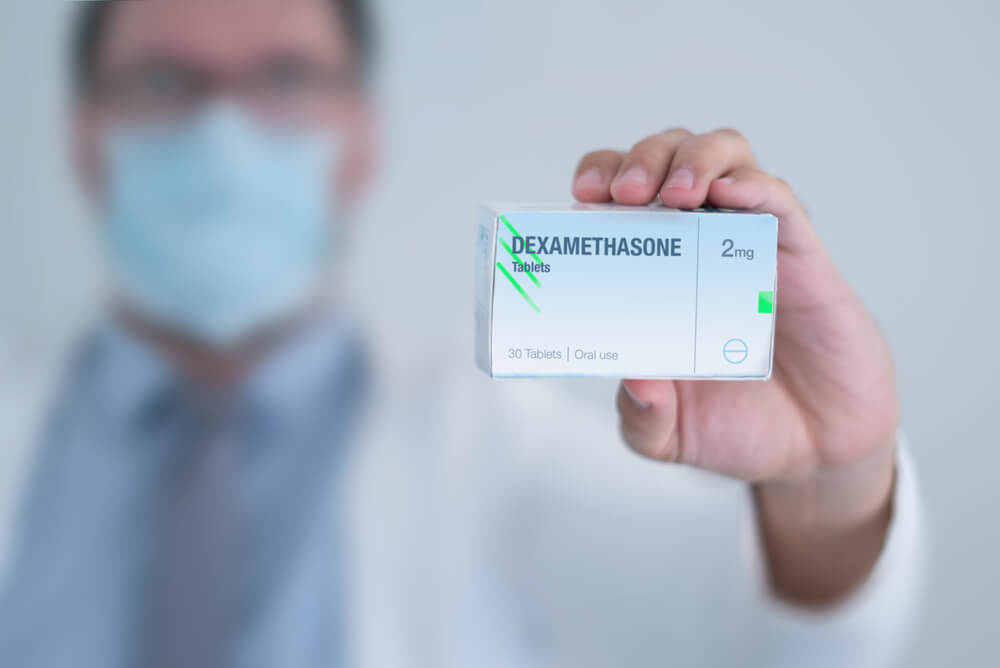



Get new exclusive access to healthcare business reports & breaking news




Aspen Pharmacare, based in Durban, South Africa, is ready to scale up production of its generic anti-inflammatory drug, dexamethasone. Studies have indicated that the drug could help save critically ill novel coronavirus patients.
Oxford University in Oxford, England, two thousand patients were given dexamethasone. Researchers found that a low-dose of the steroid dexamethasone could reduce the death rate among ventilated COVID-19 patients by 35%.
Dexamethasone has been on the market for more than 60 years and usually prescribed to reduce inflammation.
It’s used to treat a variety of inflammatory conditions, such as rheumatoid arthritis, asthma, eczema, and even some cancers. It was included in the Oxford COVID-19 trial because previously, steroids were tested as a treatment for SARS, a related lung disease.
Aspen Pharmacare, is the largest drug manufacturer in Africa. Following the successful trial, the company will “ramp up production” of dexamethasone, said Aspen senior executive Stavros Nicolaou.
“We’re still trying to figure out what the global demands will be,” Nicolaou said. “Obviously, if the virus surges through the roof, we are going to face some constraints.”
Aspen currently manufactures dexamethasone in Germany and also contracts the injectable form of the drug to third parties.
The World Health Organization has tagged further research on this inexpensive and widely available steroid as a top priority, which is sure to create a surge in demand.
“While the data is still preliminary, the recent findings that dexamethasone has the potential to save the lives of critically ill COVID-19 patients gives us a much-needed cause to celebrate,” said WHO chief Tedros Adhanom Ghebreyesus.
“The next challenge will be to increase production and equitably and quickly distribute dexamethasone globally, focusing on putting it where it is needed most.”
Shares of Aspen Pharmacare on the Johannesburg Stock Exchange rose to a three-month high following the release of the study.
“More importantly, what this does for us is it allows Aspen to remain at the forefront of the South African COVID response. It also more allows Aspen to operate more broadly in other countries,” Nicolaou said. He added that Aspen has already helped with coronavirus outbreaks globally.
Established in 1850 by Berry Grey Lennon in Port Elizabeth as Lennon Ltd, the company grew steadily over the next 150 years. By 1930, Lennon Ltd was the largest drug manufacturer in the Southern Hemisphere. It transformed into Aspen Healthcare in 1997. In 2003, Aspen was granted licenses to manufacture generic versions of the antiretrovirals used to treat HIV for use in Sub-Saharan Africa. By that time, Aspen was already the biggest generic drug manufacturer in South Africa. For many years, Aspen has also been a major supplier of anesthetics to Europe.
“Anesthetics are an important product for COVID-19 so we were able to make a difference for those patients,” Nicolaou said. “We will now be able to make a difference with dexamethasone.”
South Africa’s health ministry declared that the Oxford-led dexamethasone trials were an important discovery that would be “easily implementable in our country”.
“It is very exciting,” said Health Minister Zweli Mkhize, “since licenses to make this drug all over the world are owned by a company based in South Africa.”
“The Department of Health has recommended that dexamethasone can be used on patients on oxygen supply and on ventilators,” said South African President Cyril Ramaphosain an address to the nation. “We think that this will improve the management of COVID-19 among patients who are most severely affected.”
The number of confirmed coronavirus cases globally has exceeded nine million. Worldwide, the disease has killed over 468,500 people since the pandemic began last December in China.